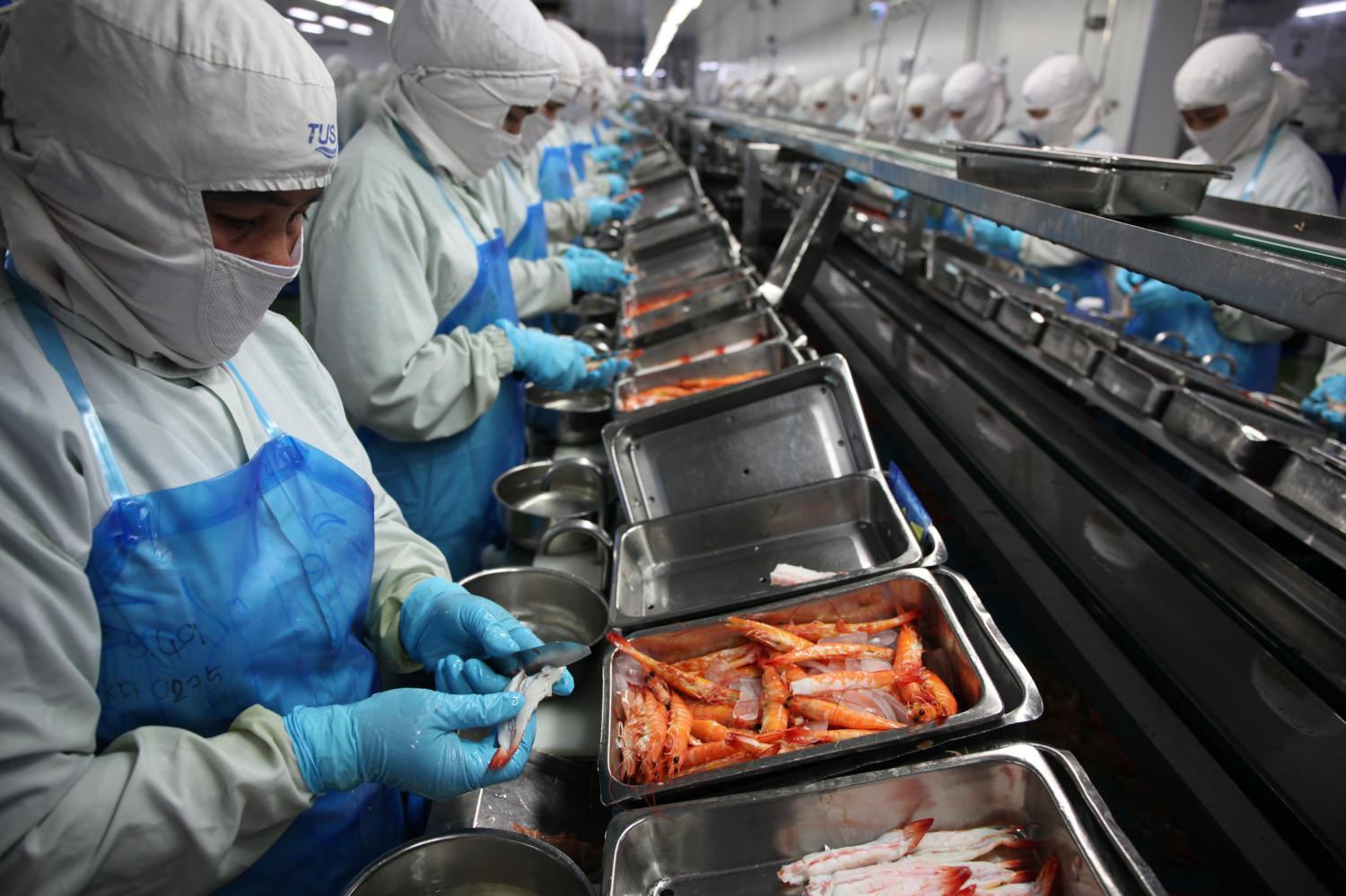
A group of Thai exporters is growing concerned about the rising number of infections, particularly in the industrial manufacturing sector, pointing out if the infection rate is not controlled it may affect the country's export performance this year.
Chaichan Chareonsuk, president of the Thai National Shippers' Council (TNSC), said he is afraid Thai exports in October may be adversely affected if the government fails to contain the Covid-19 spread over the next two months.
"The government needs to speed up the allocation of vaccines to the manufacturing sector as fast as possible to prevent an impact on the export sector, which is the only engine driving the country's economy with tourism limping," he said. "Export prospects are promising, particularly for rubber products, food, auto parts, electronics, electrical appliances and plastic pellets. Exporters want assurances production will not be disrupted from July to September."
TNSC forecasts export expansion of 10% this year if the government can control Covid-19 infections over the next two months. However, if high levels of infections persist, the council expects growth of only 7% this year.
"Although domestic outbreaks remain severe, leading some factories to temporarily halt their production and postpone the delivery of goods to destination countries, we expect total exports will not be affected much in the short term," said Mr Chaichan. "Exporters have managed to fulfil their purchase orders for the peak period in the third quarter."
He said exports in June are expected to expand by about 30% from the same period last year, boosted by a continued global economic recovery and healthy export growth in China.
The reopening of the US, Europe and China should also help increase outbound shipments, said Mr Chaichan.
However, risk factors linger such as labour and chip shortages, the rising cost of electrical appliances such as TVs and smartphones, and rising global steel prices, he said.
The TNSC plans to propose the Labour Ministry address the manpower shortage by allowing an additional 200,000 foreign workers to serve labour-intensive industries such as chicken processing, garments and textiles, rubber products and electronics, said Mr Chaichan.
Foreign workers have returned to Thailand, but remain stranded by the lockdown.
The container shortage and higher freight costs are additional risk factors for the export sector, he said.
Nantapong Chiralerspong, deputy director-general of the International Trade Promotion Department, said the country's overall exports are unlikely to be affected by the third wave. His department is still upbeat that Thai exports will achieve 4% growth as forecast.
Shipments are maintaining healthy growth momentum, recording the fastest expansion in 11 years in May, driven by strong global demand and an economic recovery in trading partners as the government continues aggressive promotion.
Customs-cleared exports rose for a third month, increasing by 41.6% from May last year to US$23.1 billion (736 billion baht), after gains of 13.1% and 8.47% in April and March, respectively, and a 2.59% contraction in February.
Outbound shipments fetched more than $20 billion for the fourth consecutive month and recorded the highest growth rate in 11 years since June 2010.
Exports excluding gold, oil-related products and weaponry continued to soar by 45.9% in May after a 25.7% expansion in April and a 12% rise in March. The expansion was partly attributed to the ministry's export promotion plans this year, in addition to the robust global economic recovery, especially in the manufacturing sector.
Imports increased by 63.5% in May to $22.2 billion, resulting in a trade surplus of $796 million.
In the first five months of 2021, exports expanded by 10.8% from the same period last year to $109 billion, while imports rose by 21.5% to $107 billion, resulting in a trade surplus of $1.49 billion.
Products recording strong growth in May included agricultural and food products such as cassava products, rubber, vegetables and fruit, fresh, chilled and frozen chicken, palm oil, beverages, pet food and food seasonings.
Other gainers comprised of products related to working at home and home appliances such as computers, furniture and parts, air conditioners, microwave ovens, refrigerators and freezers, washing machines and parts, radio and TV receivers and parts, and Covid-19 related products such as rubber gloves and medical equipment.
Products related to the manufacturing sector such as steel and products, chemicals, plastic resins, electronic integrated circuits, and machinery and parts reported healthy growth in May. Automobiles and auto parts, and gems and jewellery (excluding gold) also recorded gains.